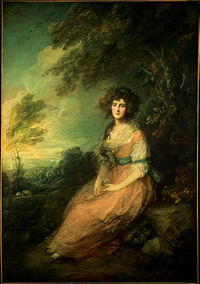Annotation:Lowland Lads (The)
Back to Lowland Lads (The)
LOWLAND LADS, THE. AKA and see "Ah! Sure Such a Pair." English, Jig or Air. D Major. Standard tuning (fiddle). AABB. The melody appears in the music manuscript copybook of Henry Livingston, Jr. Livingston purchased the estate of Locust Grove, Poughkeepsie, New York, in 1771 at the age of 23. In 1775 he was a Major in the 3rd New York Regiment, which participated in Montgomery's invasion of Canada in a failed attempt to wrest Quèbec from British control. An important land-owner in the Hudson Valley, and a member of the powerful Livingston family, Henry was also a surveyor and real estate speculator, an illustrator and map-maker, and a Justice of the Peace for Dutchess County. He was also a poet and musician, and presumably a dancer, as he was elected a Manager for the New York Assembly's dancing season of 1774-1775, along with his 3rd cousin, John Jay, later U.S. Chief Justice of Governor of New York.

The melody is the air for the song "Ah, sure a pair was never seen" from Richard Sheridan's (1751-1816) comic opera The Duenna (1775), staged at Drury Lane and Covent Garden, London. Livingston must have much admired the work, for he included a number of songs from the opera in his copybook. The music was composed by a father and son, both named Thomas Linley, although the opera is chiefly remembered for its libretto, the work of Sheridan. In fact, the libretto was well-enough thought of to form the basis of an opera by Roberto Gerhard, and for Prokofiev's Betrothal in a Monastery. Linley the son was a friend of the young Mozart, while the elder Linely was Sheridan's father-in-law.
Source for notated version:
Printed sources:
Recorded sources:
Back to Lowland Lads (The)
